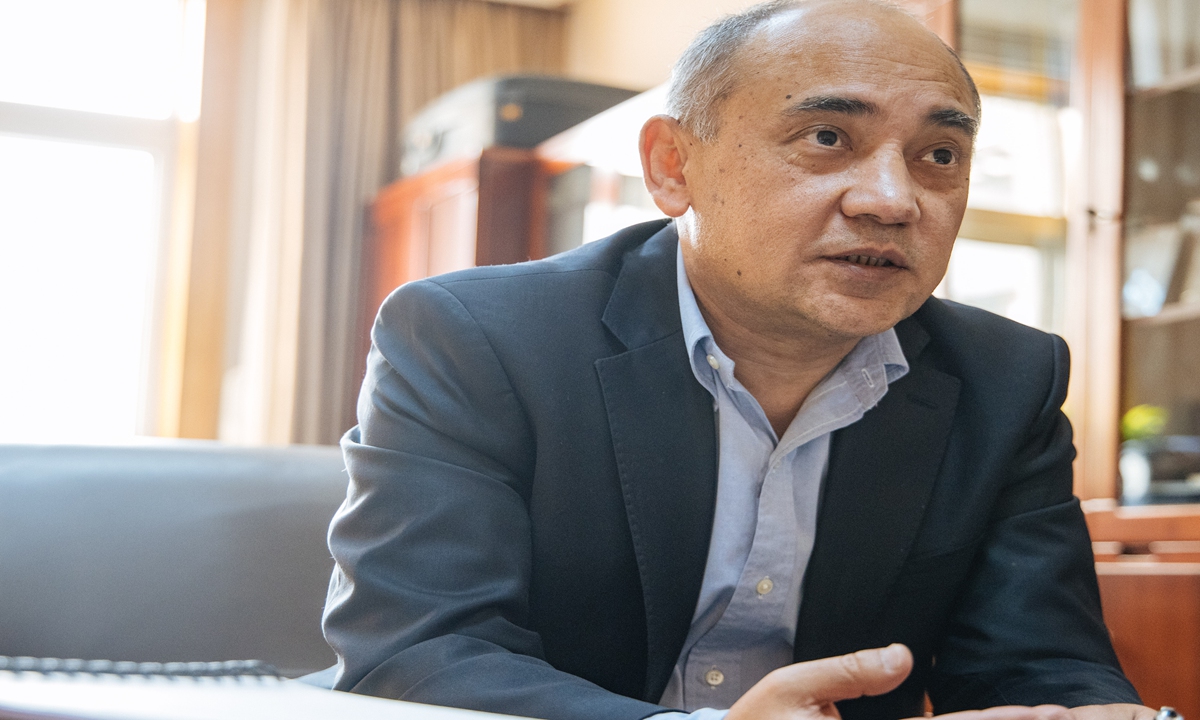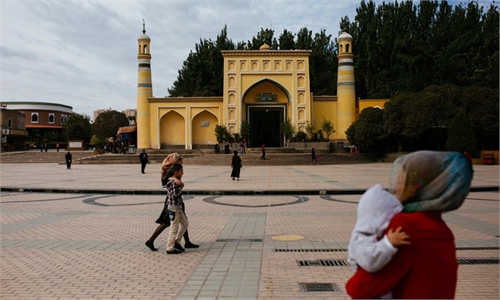
Adiljan Haj Kerim, vice president of China Islamic Association Photo: Li Hao/GT
Over the decades, China has made great efforts to provide care to Muslim citizens and ensure their normal needs are met. However, some hostile forces in the West have used every means to smear China's efforts in protecting Muslims and kept making groundless accusations including accusing China of infringing on Muslims' religious freedom. What's the real situation of Muslims in China? What does the government do to protect and improve their life? How is the sinicization of Islam going? Global Times reporter Liu Xin (GT) interviewed Adiljan Haj Kerim (Adiljan), vice president of China Islamic Association, to find answers.
GT: Could you tell us about your experience of studying abroad? How does China educate imams currently?
Adiljan: After graduating from the No 14 Middle School in Urumqi, Northwest China's Xinjiang Uygur Autonomous Region, I was chosen to study abroad in March 1982. I was sent to the Al-Azhar University in Egypt to learn languages and religious knowledge. I graduated in June 1991 and then came back to work in the China Islamic Association in July in Beijing.
With the support of the government, 10 Islamic institutions have been established in many places across China, including in the Xinjiang region and in Lanzhou, provincial capital city of Gansu Province.
In recent years, the country has also organized compiling of religious textbooks, laying the foundation for religious teaching. The China Islamic Institute has set up training courses for imams from Xinjiang.
Since 2001, the National Religious Affairs Administration also organized training for interpreting religious classics, with more than 1,000 people from Xinjiang attending.
The education and training system for imams in the Xinjiang region has also been established. In September 2017, the nation put over 100 million yuan ($15.49 million) into building a new campus for the Xinjiang Islamic Institute and eight branches in Kashi, Hotan and other places in Xinjiang, which helped to educate more than 4,000 students and helped maintain Islam in the region.
GT: In recent years, some Western media reports have kept hyping China's policies to guide religions to fit into the socialist society. Does it aim to restrict Islam in China?
Adiljan: Guiding Islam to suit the socialist society is not to restrict or oppress the religion. It aims to use the socialist core values as guidance and to lead the religion to integrate into Chinese culture. It is also about helping religious groups to cultivate self-esteem and a positive attitude toward life.
Loving the country, loving the people, loving our religion is the honorable tradition of Islam in China. By promoting Islam's basic ideals, including peace, love for the country, friendship, equality, forgiveness and benevolence, it can play an important role in deepening love and unity among different ethnic groups and safeguarding stability.
GT: We have noticed that you have frequently communicated with foreign religious groups. What are their questions on Xinjiang? How do you introduce China's policies in Xinjiang to them?
Adiljan: China's Islamic circle has kept friendly relations with Arab and Islamic countries and Islamic organizations. In 2016, we held an international seminar in Urumqi, Xinjiang on Islamic ideals with representatives from Islamic countries attending. In recent years, Xinjiang has also welcomed many foreign groups, including the Organization of Islamic Cooperation (OIC) and religious groups from Indonesia, Malaysia and Afghanistan.
They all thought that Xinjiang's religious groups and imams are enjoying freedom of religion and that the local government takes care of them. They also felt the ethnic unity and harmony among different groups as well as the Chinese government's attention and support to the region's development.
We also keep good ties with the Al-Azhar University and Muslim World League, and attend international seminars to introduce Islam in China and the situation of Muslims in China.
These extensive and regular exchanges with other Muslims globally help demonstrate the history and culture of Islam in China and the happy lives of Chinese Muslims as well as deepening mutual trust among these countries.


